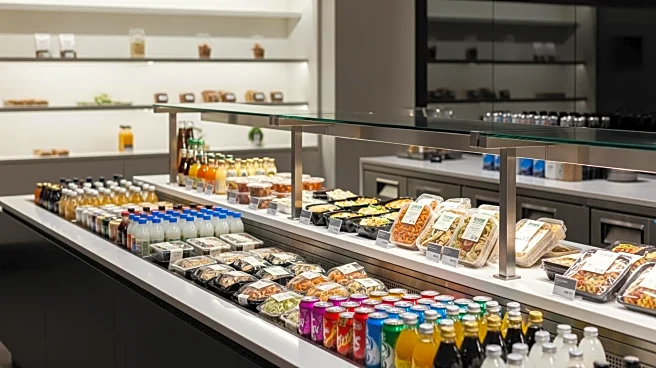What's Happening?
The imposition of tariffs is affecting the new car market, with automakers finding ways to manage costs without raising sticker prices. According to a report by CBS News, while the anticipated price increases have not yet materialized, manufacturers are employing strategies to offset the financial impact of tariffs. This includes adjustments in production and sourcing to maintain competitive pricing. The editor of Kelley Blue Book discussed these developments, highlighting the importance for consumers to stay informed about potential changes in car pricing.
Why It's Important?
The tariffs on imported goods, including automotive parts, have significant implications for the U.S. car market. They can lead to increased production costs, which may eventually be passed on to consumers. This situation underscores the interconnectedness of global trade policies and domestic economic conditions. Consumers may face higher costs for new vehicles, affecting purchasing decisions and potentially slowing market growth. The automotive industry, a key sector in the U.S. economy, must navigate these challenges to sustain profitability and consumer demand.
What's Next?
As the situation evolves, consumers should monitor developments in tariff policies and automotive pricing. Automakers may continue to explore innovative solutions to mitigate cost increases, such as diversifying supply chains or enhancing operational efficiencies. The industry will likely engage with policymakers to address the impact of tariffs and advocate for favorable trade conditions.
Beyond the Headlines
The broader implications of tariffs extend beyond the automotive industry, affecting various sectors reliant on international trade. This situation highlights the need for strategic economic planning and the potential for shifts in consumer behavior. Long-term, the industry may see changes in manufacturing locations and investment in domestic production capabilities.









